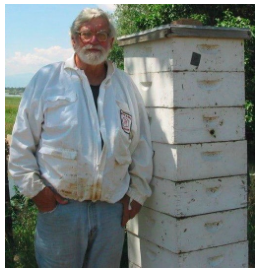I’m resurrecting another interview I did, The Problem with Neonicotinoids, previously posted on Tom’s Corner in 2018. I did this one with old friend Kim Flottum along with moderator and new friend Jeff Ott.
I’m bringing these interviews to the fore for a number of reasons. First, I think they are important and they represent what some of my concerns are. Second, we have had a lot of new beekeepers enter the craft in the last few years and I think these postings are important for them to listen to. And finally, while I do not dismiss any of the other challenges that beekeepers face today, I believe that ultimately it is the neonicotinoids and the massive environmental poisoning they represent that are leading to the bee deaths we are experiencing, and we must address these and the knowledge of these hazards must be passed on to a younger generation of beekeepers. If you scroll down you will see that we have lost some important voices just with the past few months.
Take the time to listen to this podcast, and when you finish scroll down and listen to the others as well.





 The EPA is required to evaluate and determine if toxic chemicals should be re-registered on a 15 year cycle and several of the heavily used neonicotinoids have come up for review: clothianidin, thiamethoxam, imidacloprid, dinotefuron and acetamiprid. Typically there is a 30 day comment period as a part of the review process, there was one in 2018 and a 30 day extension, two more in 2020, which closed on May 4th.
The EPA is required to evaluate and determine if toxic chemicals should be re-registered on a 15 year cycle and several of the heavily used neonicotinoids have come up for review: clothianidin, thiamethoxam, imidacloprid, dinotefuron and acetamiprid. Typically there is a 30 day comment period as a part of the review process, there was one in 2018 and a 30 day extension, two more in 2020, which closed on May 4th.